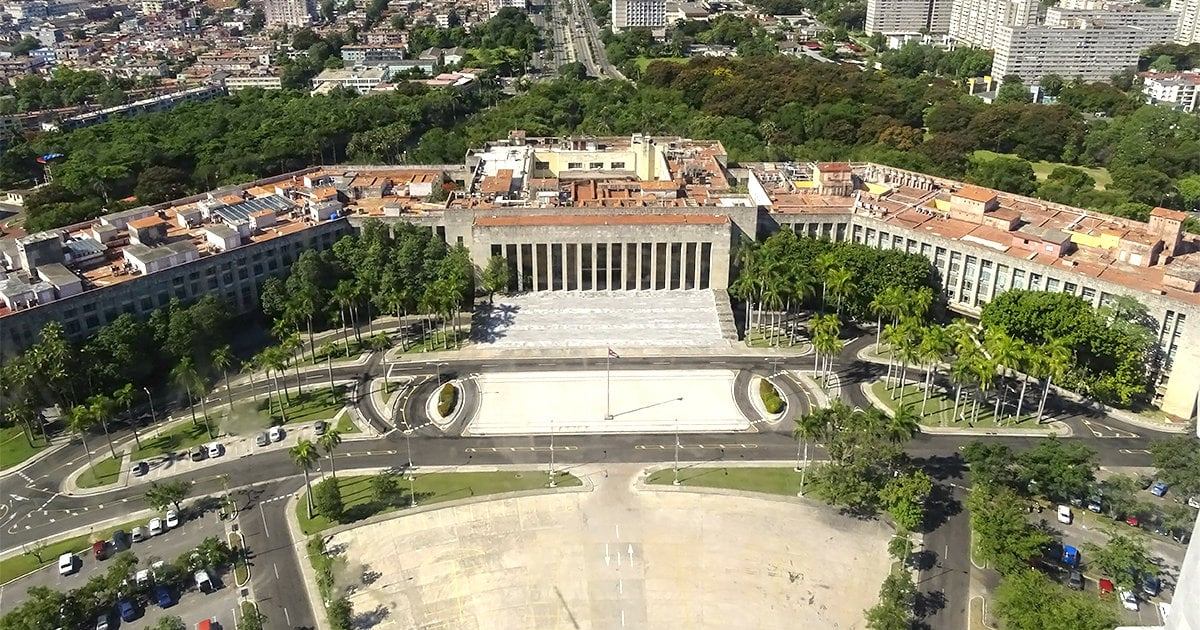
Related videos:
The Cuban government reacted this Tuesday to the decision of the United States to remove Cuba from the list of state sponsors of terrorism, stating that this measure is "limited but correct."
In an official statement from the Ministry of Foreign Affairs, the Cuban regime labeled the measure as "limited," but it represents a step in the right direction.
Cuba expressed gratitude to the governments and international organizations, especially those from Latin America and the Caribbean, for their repeated calls to eliminate the designation, which has been a recurring topic in exchanges between the two countries.
The measure would also put an end to certain economic restrictions, such as the limitations on financial transactions with Cuban entities and the prohibition of lawsuits under Title III of the Helms-Burton Act.
The Cuban government emphasized that, although this action by the United States is a positive step, the coercive measures continue to severely impact the country's economy and its population.
He mentioned, among other points, the persistence of the economic "embargo" and the "persecution" against fuel supplies and international medical cooperation.
He also noted that international financial transactions remain under severe restrictions, affecting both the government and Cuban citizens, an excuse that the Havana government uses to cover up its inefficiency.
Moreover, Cuba reiterated that, despite the removal of the designation as a state sponsor of terrorism, the punitive policies aimed at weakening the Cuban economy remain in place, and it once again blamed the U.S. for forcing emigration.
In the official announcement from the White House on Tuesday, it was emphasized that President Biden certified that the Cuban government has not supported international terrorist activities in the past six months.
This certification, in accordance with U.S. regulations, also underscores Cuba's commitment not to support acts of terrorism in the future.
Nonetheless, the Cuban administration insisted that the designation should never have been made and that the truth and the lack of basis were sufficient to exclude the country from that list.
Biden's decision at the end of his term—just before Donald Trump takes office on January 20— is the result of several negotiations with the island aimed at the release of hundreds of political prisoners, many of whom were protesters on July 11, 2021.
Following Washington's announcement, the Cuban regime announced that it would release 553 prisoners and asserted that the measure was in response to mediation by the Vatican, without mentioning the U.S.
However, Washington previously stated that it was removing Cuba from the list of state sponsors of terrorism and suspending Title III of the Helms-Burton Act, following mediation by the Catholic Church, in an agreement that includes the release of a "significant number of political prisoners" on the island.
However, Biden's decision was met with criticism from Republican sectors.
Senator Ted Cruz called the measure "unacceptable" and promised to work to overturn it, just like Trump.
On the other hand, Marco Rubio, a proponent of sanctions against Cuba, is expected to lead efforts to block this policy from the Senate Foreign Relations Committee.
Frequently Asked Questions about Cuba's Removal from the List of State Sponsors of Terrorism
Why did the United States remove Cuba from the list of state sponsors of terrorism?
The United States removed Cuba from the list because President Joe Biden certified that the Cuban government has not supported international terrorist activities in the past six months and has provided assurances that it will not support acts of international terrorism in the future.
What does it mean for Cuba to be removed from this list?
The removal of Cuba from the list of state sponsors of terrorism ends certain economic restrictions, such as limitations on financial transactions with Cuban entities and the prohibition of lawsuits under Title III of the Helms-Burton Act. This could ease economic pressure on Cuba and create a more favorable environment for bilateral cooperation.
How has the Cuban regime reacted to this decision?
The Cuban regime described the measures taken by the United States as "limited but correct," viewing it as a step in the right direction, although insufficient. The Cuban government insists that the coercive measures continue to severely affect the country's economy and its population, mentioning the persistence of the economic "embargo" and international financial restrictions.
What impact does this decision have on the relations between the United States and Cuba?
This policy change comes as an effort to alleviate economic tensions and promote a more favorable environment for bilateral cooperation. However, restrictions on trade and investments by U.S. citizens in Cuba remain in place, which limits the extent of the change in relations between the two countries.
What do the political sectors in the United States think about this decision?
The decision to remove Cuba from the list of state sponsors of terrorism has been met with criticism from Republican sectors, who find it unacceptable. Figures such as Senator Ted Cruz and former President Donald Trump have pledged to work to reverse it, while Marco Rubio is expected to lead efforts to block this policy from the Senate Foreign Relations Committee.
Filed under: